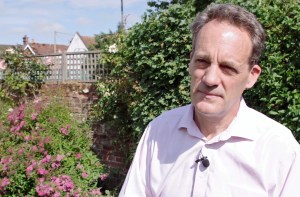Ben O’Rourke
The UK’s wildlife is in danger and needs protecting, says Prime Minister Boris Johnson. He doesn’t say from what, but says the government will designate another 4,000 square kilometres of land as protected, taking the total up to 30% of the devolved kingdoms’ land.
Some wildlife groups have welcomed the move, but will it make any difference?
“It’s a rallying cry for campaigning organisations,” says Game & Wildlife Conservation Trust’s Andrew Gilruth. “They can tell politicians they need to do more and politicians like designations because you can just draw a line on a map. The next thing that will happen is some organisations will say it’s got to be legally-binding or he’ll backtrack and others will say it’s only a thing on a piece of paper and it doesn’t achieve anything. Hey presto, we have known for decades it doesn’t achieve levels of recovery.”

Gilruth points to curlews on Dartmoor, a protected area where the demise of the birds was wrongly blamed on human interference.
“They just monitored the species to extinction,” he says. “It’s designated but that doesn’t stop the foxes and crows because they don’t follow paperwork. It wasn’t the foxes, it was the crows that were picking off the last of the curlew.”
“The last two nests were near a car park and it was always attributed to the fact they were disturbed by people walking and dogs jumping out of the boots of cars. In fact, when ornithologists monitored the nests they discovered that the curlew seemed to know whether a dog is out having fun and just going for a walk or whether a dog is out hunting for a meal and if they know it’s out having fun they just sit on the nest and don’t worry at all.”

Gilruth says the GWCT believes the plan will only work if the gamekeepers are involved as they are “looking after the whole landscape and what’s going on”. At the same time, with the help of Natural England, the law is killing species it is supposed to be protecting.
“We’ve also reached this absurd situation where some of this regulation has become self-defeating,” he adds. “Special Protection Areas are the only places where you cannot actually control the crows using a general licence. So the tools that could be used to protect the species within a SPA, at the moment, can’t be used. In theory, you can apply for an individual licence to allow someone to control the crows in a SPA but Natural England hasn’t managed to issue any of those this year.”
Or last year, as Fieldsports News has reported several times.
Tim Bonner from the Countryside Alliance sees the positive side of the government’s plan, as long as it accepts people have been a major factor – and continue to be – in the creation and upkeep of this green and pleasant land.

“These places are designated, the reason they become national parks, is because of the farming and the land management systems of the people,” he says. “[William] Wordsworth wasn’t writing about another world Lake District, he was writing about this landscape that had been created by generations of farmers. Which is still there and still being maintained.”
“This isn’t about conserving a ‘chocolate box’ view of the British countryside, this is about sustaining communities and sustaining land use that has been there for generations which have created the beautiful places people love so much.”








